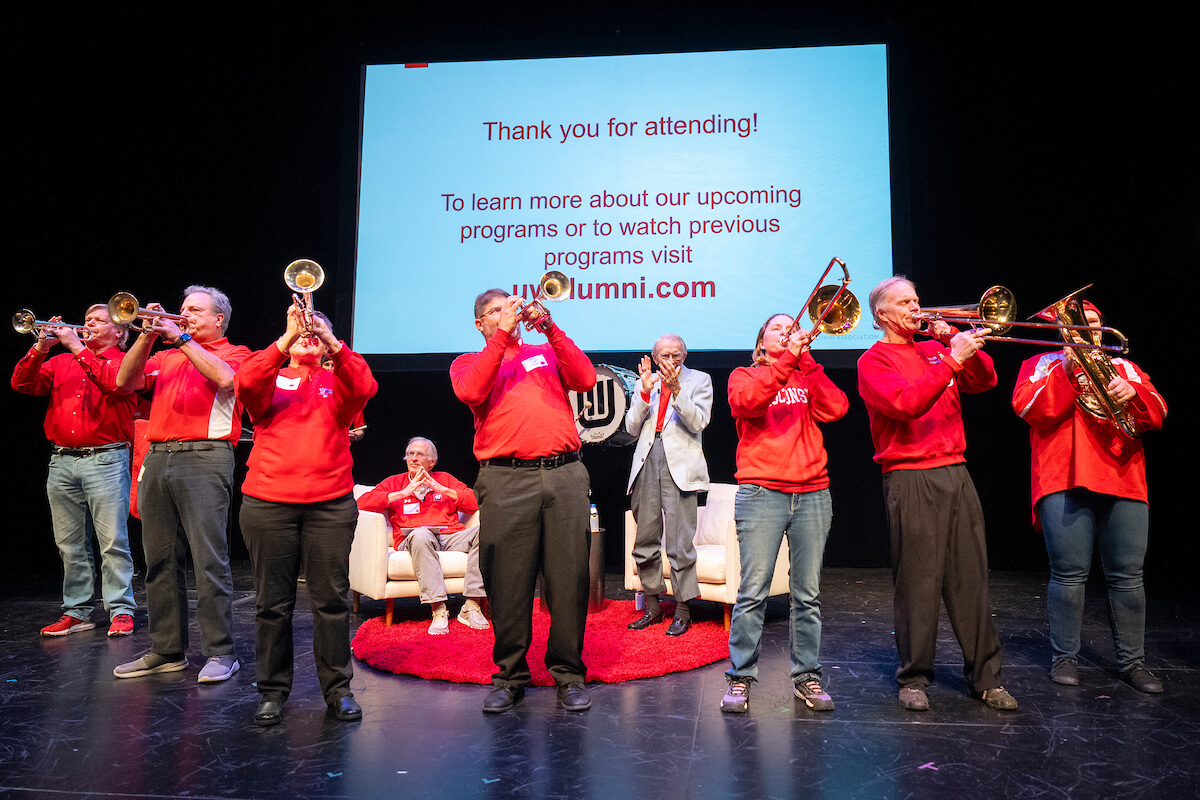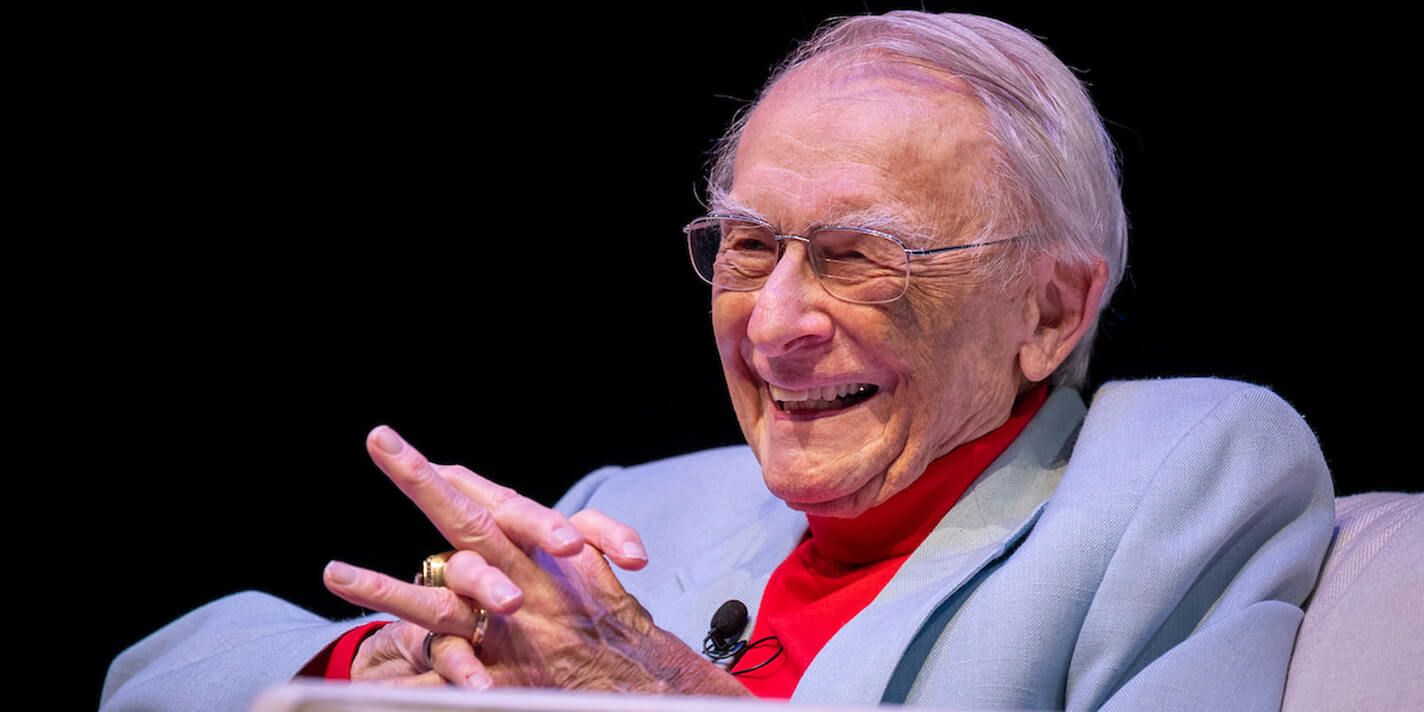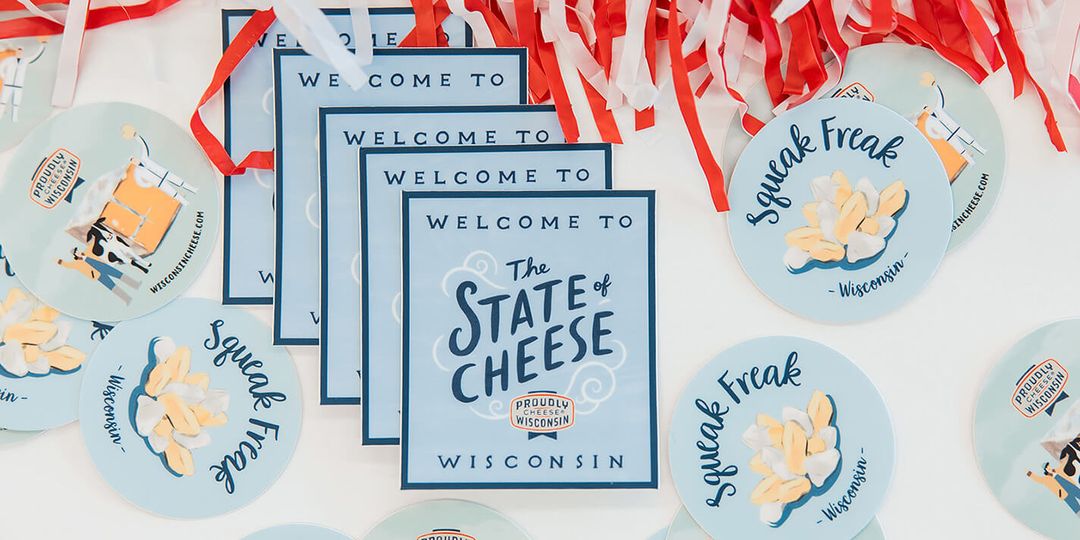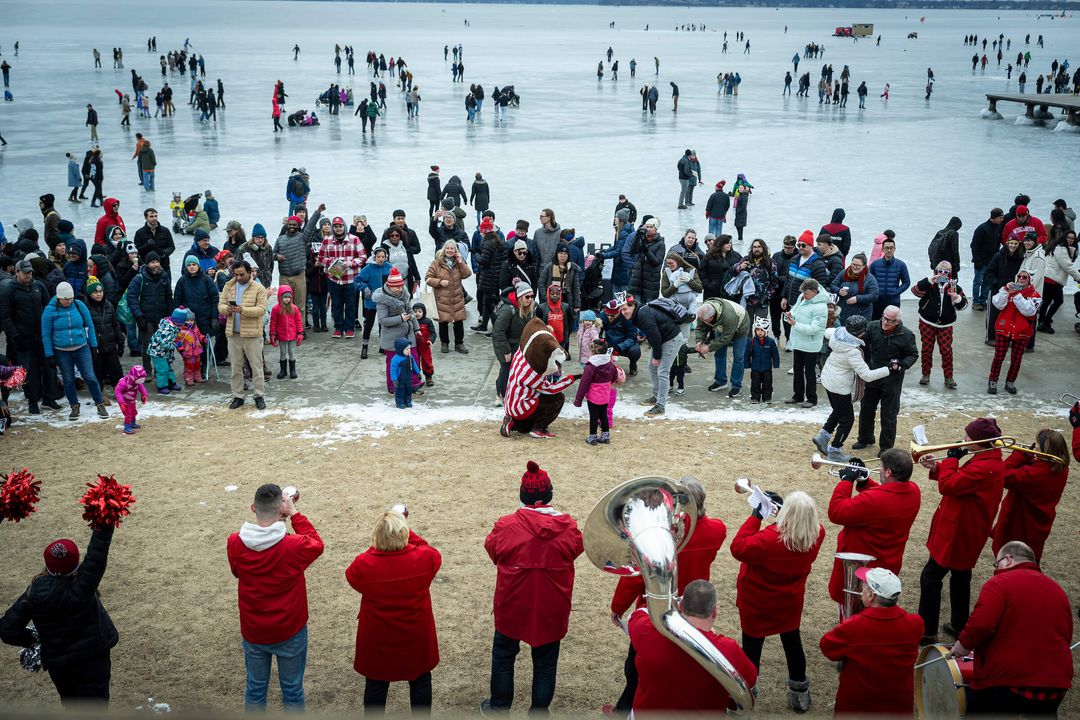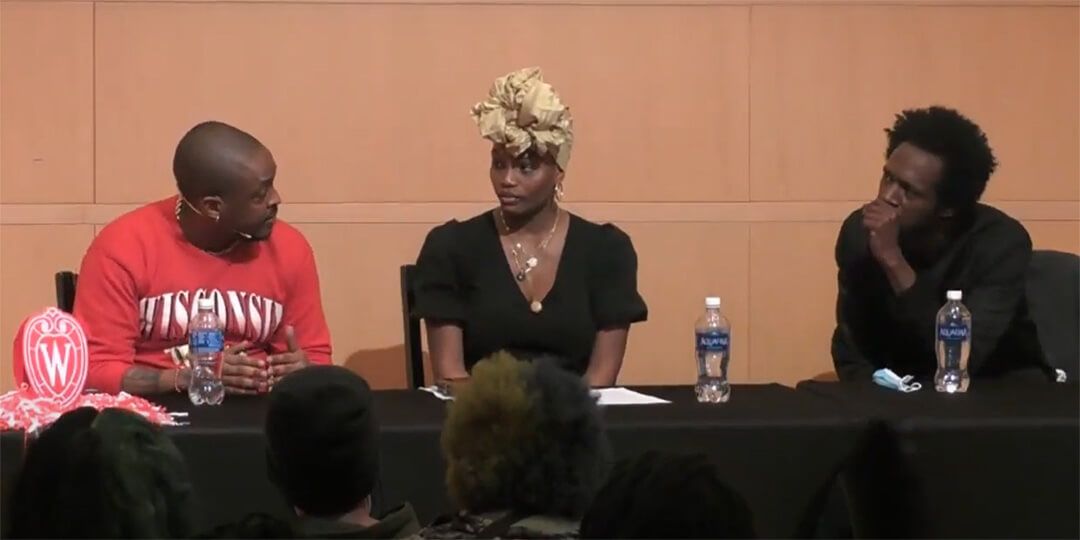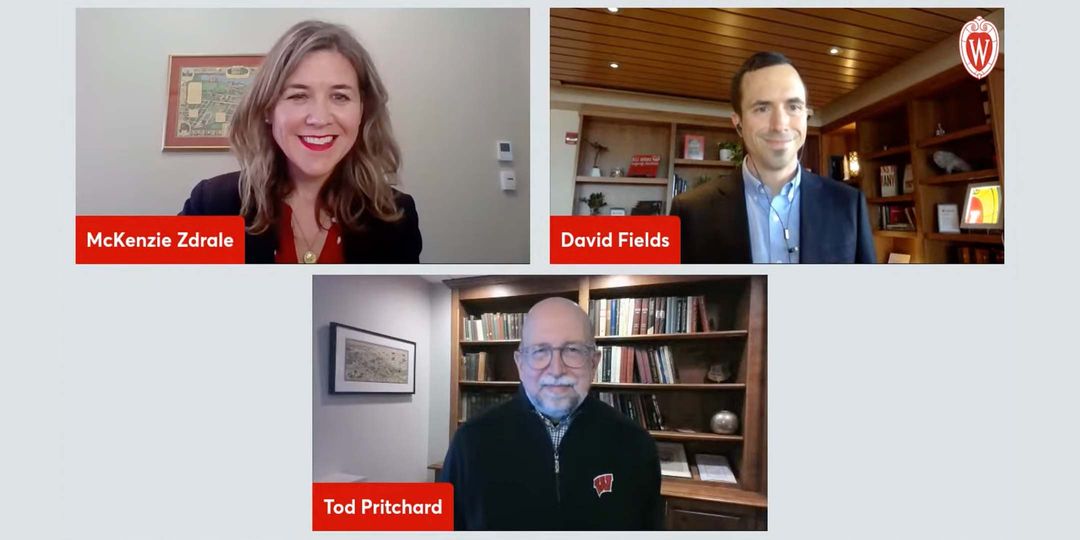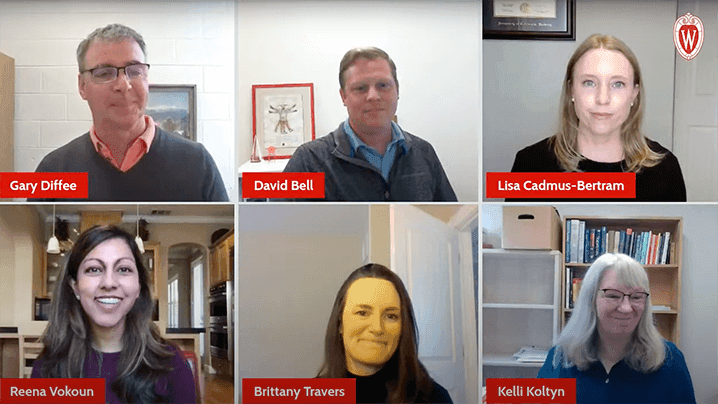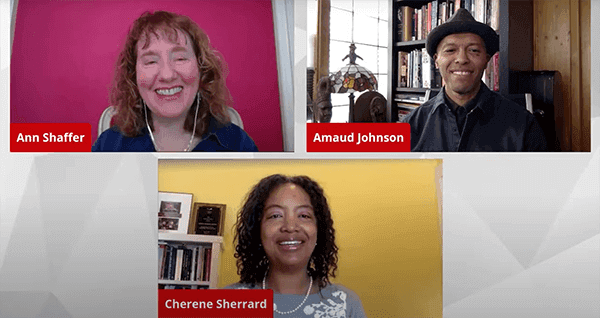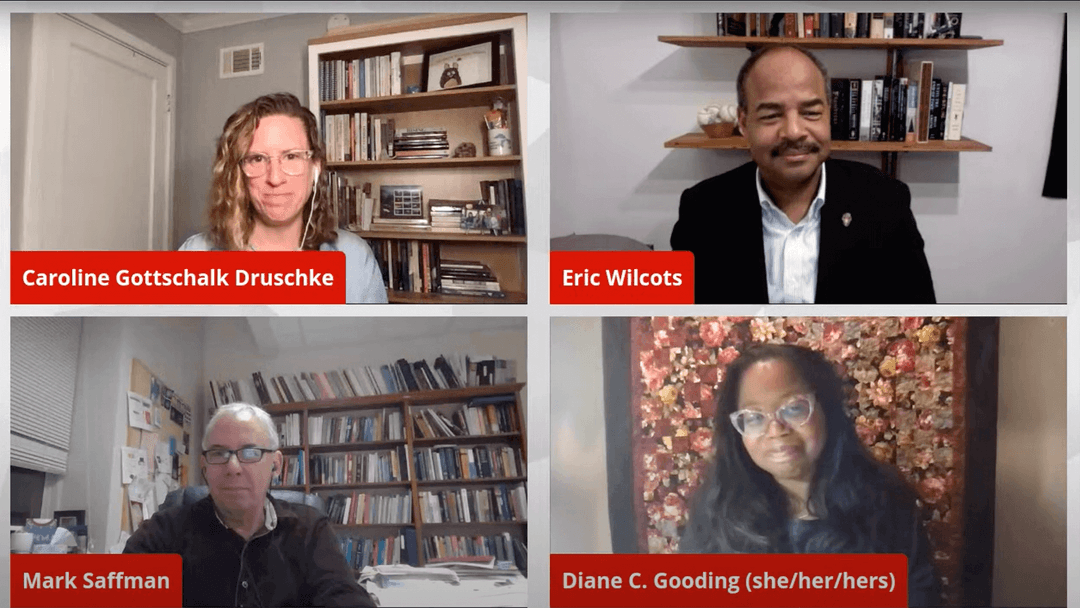The Wisconsin Alumni Association hosted a special Wisconsin Idea Spotlight event featuring former University of Wisconsin–Madison director of bands Mike Leckrone and acclaimed author Doug Moe, celebrating the release of their new book chronicling the rich history of UW–Madison’s band program. Read some highlights of the transcript or watch the full program.
Moments of Happiness: A Wisconsin Band Story captures Leckrone’s legendary 50-year career and the evolution of UW–Madison’s renowned band program. The evening provided attendees with an intimate look into the career of Mike Leckrone and the university’s bands, which Leckrone transformed into the celebrated institutions we know today.
Leckrone and coauthor Doug Moe, a UW alumnus and one of Wisconsin’s most distinguished journalists, sat down for a one-on-one interview with the Wisconsin Alumni Association before the event.
Question:
Let’s start with the title of the book because I think it’s fascinating. Moments of Happiness. Can you tell me what inspired that title? Where did that come from?
Mike Leckrone:
Well actually, it came from a talk that I was giving to the band just before we did the first Rose Bowl, and I was telling them that sometimes you can take these things for granted. Breathe in every moment that you can. Look at everything that’s going on around you, suck it all in, and so that when you’ve got times [that] are not so good, you’ve got those moments of happiness that you can rely on to sort of pull you through some of the lesser times. I started using it as a regular speech that I gave to the band before the season started. There are going to be some bad times but think about the moments of happiness. And it’s just kind of stuck with me ever since, and I’m glad you like the title.
Question:
I love the title. I think it’s fascinating and it’s great life advice too, right?
Mike Leckrone:
Oh, well, I think so too. It is part of what I try to teach every day.
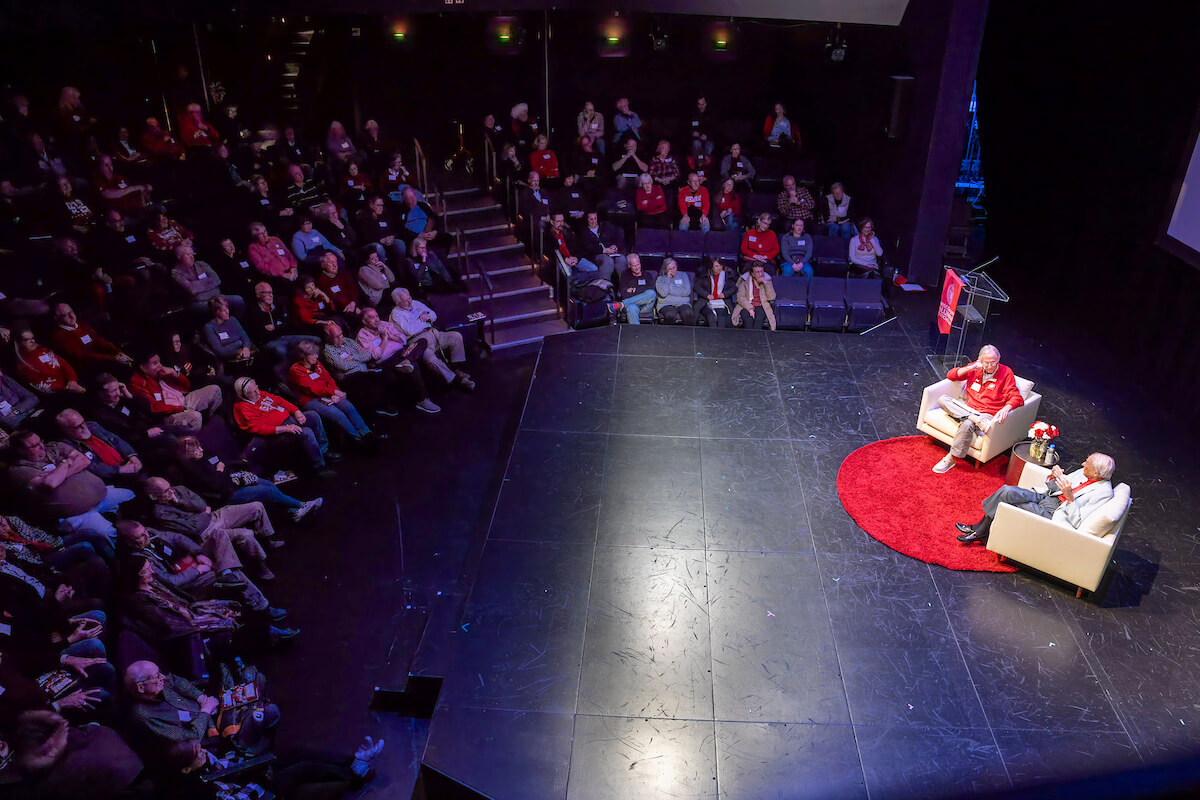
Doug Moe:
Maybe this is inside baseball a little bit, but Mike actually had to put his foot down a little bit on that title. The publisher was uncertain and having been through this a few times with other books, [the] publisher generally wins, but Mike fought City Hall, and I love the title, and I think it’s borne out that people do.
Question:
I’m sure there have been so many moments of happiness. Is there one that really sticks out to you?
Mike Leckrone:
Well, I’ve already said it: the Rose Bowl. That first Rose Bowl just topped anything I’d ever done before, and it’s something, as I said, I still rely on it to bring me back. So that was a moment that I can’t get out of my head. When you talk to people who were in the band, that’s where they always gravitate to as well.
Question:
What made that so special?
Mike Leckrone:
Everything. It wasn’t just a moment. It was everything that was going on at that time. I mean, the whole state came together if you were around at that time. It was just an amazing show of love for Wisconsin and everything just came together on that. As I said, it wasn’t a moment, it was a week of happy thoughts and happy deeds and nothing has ever been able to surpass it. I think sometimes you anticipate more than what [the] realization is going to be, but this didn’t. The anticipation and the realization were the same.
Question:
Your father was a band director. What philosophy did he share with you that you used to transform the UW–Madison band program?
Mike Leckrone:
One of the things that’s stayed with me more than anything is basically you can do more than you think you can. And if you stop before you reach perfection — which you’re never going to reach — if you stop before that point, then you haven’t done everything that you are able to do. My grandfather used to say, if you think you can’t, you can’t. And I firmly believe that, so I use that philosophy to push the kids. I think they would all tell you I pushed them about as hard as they could be pushed.
Question:
And that certainly came out as you guys were working on this book together, right, that philosophy of life.
Doug Moe:
Well, yeah. I was a fan of the band, but not an insider by any means. And I think one of the things that I learned in my research was how hard they worked. I think the philosophy was [that] it’s fun, but it’s only fun if you do a really good performance. And to do a really good performance, there’s hours and hours of hard work to make that happen.
Question:
What is your favorite halftime performance?
Mike Leckrone:
It’s like asking me which is my favorite kid. I gravitate a lot towards the musical theater, and so a couple of my favorites have been Phantom of the Opera. I did that as a halftime show once, and I was very satisfied with it. West Side Story always works. You can’t fail with West Side Story. Those are the kind of shows that I really, really enjoy doing is where there’s a — a scenario is already there for me. All I have to do is fill in the tunes.
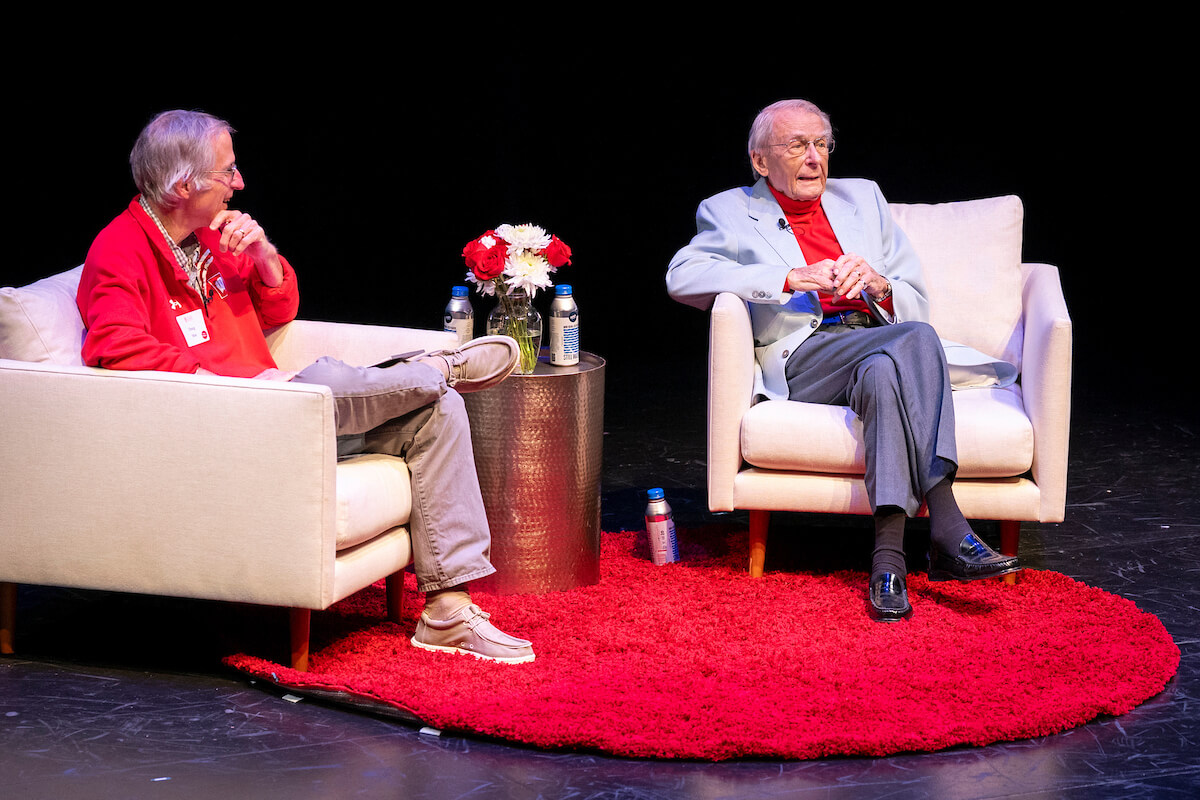
Question:
Can you tell us the elephant story?
Mike Leckrone:
The team was at a low spot. We were trying to find anything we could to get the audience involved, to get the people coming to Camp Randall. And I came up with the idea once — somebody said, do you have any ideas? I said, well, let’s do … let’s do a circus. Everybody likes the circus. Kids like it. We could get some kids maybe to come in for the show, bring the parents along. It’d be a day at Camp Randall, Circus at Camp Randall. We booked a whole lot of — I booked acrobats, I booked people who were tumblers, I booked jugglers, people who simulated, I guess you’d say, circus acts. The thought was, if you’re going to have a circus, you got to have a circus animal. And the only animal I could think of in a circus was an elephant. Amazingly Circus World Museum said, “Sure, we’ve got an elephant that gives rides. Her name is Molly, and she’s used to being around people. We’ll send her down.” Well, it wasn’t enough for me to send her down. I wanted to ride the elephant into Camp Randall. And to make a long story very short, when it came time for me to get on the elephant and ride down to the 50 yard line, everything worked perfectly until we got to the spot where I was supposed to dismount, and Molly did something that animals do sometimes when they’re not supposed to. It was an amazing reaction from the crowd. Well, it was an amazing reaction when they first saw me, but to see me on an elephant. And then when that happened, of course that was the punctuation of what happened.
It was one of those things, people said, well, weren’t you embarrassed? Excuse me. People asked me weren’t you embarrassed? And I said, no, I really wasn’t. I thought it was funny because it was funny to anybody who saw it. I’ve said that the worst thing about it was it took a long time to clean it up, and Wisconsin was penalized five yards for delay of game.
Doug Moe:
To start the second half.
Mike Leckrone:
Yeah, to start the second half. But I thought they should have been 15 yards for unsportsmanlike conduct.
Question:
Is there something that current band director Corey Pompey does now that you absolutely love that you’re like, “That is so awesome that you’re doing that”?
Mike Leckrone:
The things that I love and appreciate the most are the things that he hasn’t changed, and that may be very egotistical to say, but in fact the step, stop-at-the-top step, he hasn’t changed that, and I am so happy, and I just love the fact that it’s still something they’re trying to do. The run-on, which I sort of invented, the fact that he hasn’t changed that. It’s still basically what I started doing in 1969. It’s great for me to see that happen. I just get a thrill out of thinking that that’s part of it. The “On, Wisconsin!” finale that we used at the end of every home, at the end of every season as a halftime show. That’s something that they’ve kept intact, and those are the things that, to think that those traditions are still going on, I really love the fact that he’s kept those going.
Question:
Doug, you did a lot of research and verified the experiences that Mike has had. Are there a couple of things that you would say that like, “Wow, this really surprised me”?
Doug Moe:
Well, the hard work aspect of it that I mentioned a moment ago I found surprising. This wasn’t surprised so much as just nailed down for me … what a wonderful showman Mike is. And I say this because I saw him do a one-man show six weeks ago here at Playhouse. There’s an anecdote early on in the book where he talks about seeing Louis Armstrong from backstage. His dad’s position got him back there, and he talked about how hard Armstrong worked, even though it was at a little county fair type situation in Indiana, but he acted like it was Carnegie Hall — he and his band. Mike, I think, has taken that — and there’s one other line towards the end of our book where he mentions Karl Wallenda, the high wire artist. Wallenda used to say, “To be on the wire is life. The rest is waiting.” And sometimes when I think about my friend, I think it’s, “To put on a show is life. The rest is waiting.”
Question:
There were many moments of happiness that you delivered during the many years of Wisconsin sports, when you and the band were the only team delivering moments of happiness?
Mike Leckrone:
We had some grim years, but that made the kids in the band even more convinced that they wanted to work hard to produce something that was special. So in a way, it worked for us. In a lot of ways, it worked in our favor because this became the show a lot of times. I’ve had so many people say, we came to see the band. I don’t think they would’ve paid that much for a ticket just to see the band, but the fact that they felt that they had, I thought that’s very significant, and it made what I was doing even more special I think.
Question:
Do you have a favorite tradition, even if it doesn’t exist anymore?
Doug Moe:
Here’s a small one that not a lot of people know about. It is in the book. You used to bring — talk about the band’s toughness. The last home game of the year before the last practice, wouldn’t you always eat an ice cream cone even though it was —
Mike Leckrone:
Didn’t matter what the temperature was. I came to rehearsal with an ice cream cone from Babcock Hall. I would get one over there and then come up to the rehearsal, and then it might be 25 degrees and wind blowing. It might be terrible, but I would come licking an ice cream cone and just sort of say, you got to be tough if you’re going to be in this band for the whole season.
Doug Moe:
Yeah. What happens if it rains? You get wet.
Mike Leckrone:
Yeah, that’s right.
Question:
So along those lines, what does “eat a rock” mean?
Mike Leckrone:
Well eat a rock is another one that came from one of my great pep talks. It was the night before a game, and we were getting ready. You want to go out there and be tough. You want to be as physical as you can be. And I said, just offhandedly, you got to be tough enough, when you go out there tomorrow, to chew nails. I said, no, wait, you got to be tough enough to eat a rock. And as soon as it was out of my mouth, the band started chanting, “Eat a rock! Eat a rock!” And I knew I had the start of something there, and so we used that as a motto. Anytime I thought that they had to be reminded that it was time to get going, that things might be tough — but you’ve got to, you have to overcome that. And so that became one of our mottos. We used it on bumper stickers. We used it every place you could imagine as a motto. All I have to do, to say, to the band — if I felt like they were coasting or not up to par, I’d say, “Okay, guys, time to eat a rock.” And they all understood. They understood what that meant.
Doug Moe:
Mike got it on a plaque as you’re coming in the tunnel or out of the inner stadium onto the field, right there. The team sees that if they’re —
Mike Leckrone:
They’re supposed to think about that before they go on the field. That’s their mindset.
Question:
Is there anything that you missed particularly after you retired, is there part of that … that part of your life that you’re like, oh, I really miss that piece of it?
Mike Leckrone:
The kids. The kids that you work with every day. Because now some of them are really old, but they’re still kids as far as I’m concerned, and I think that’s the part that you miss, that day-to-day association. Even though the faces have changed — I was there 50 years and faces changed. A lot of people got a lot grayer the time that I was there, but they’re still kids, and I still can see that kid in them, even if they come back and they’ve been out of the band for maybe 20 years.
